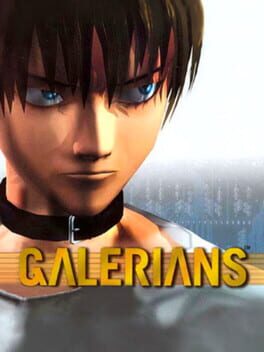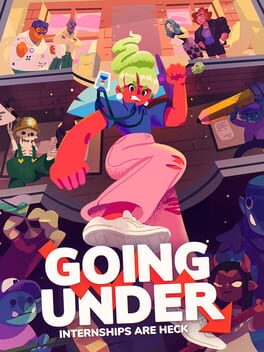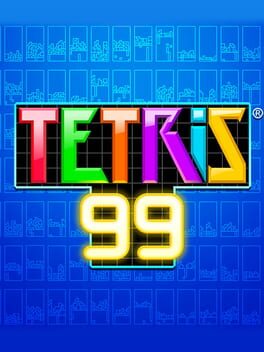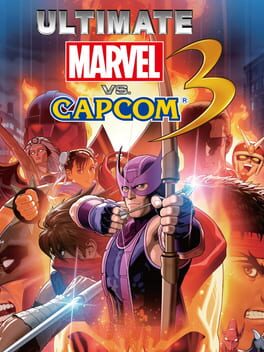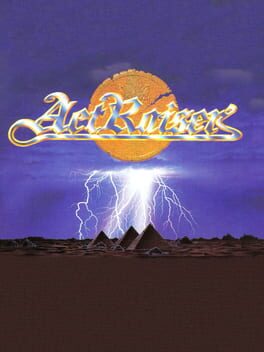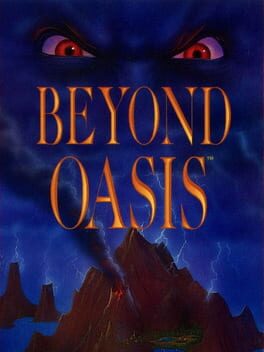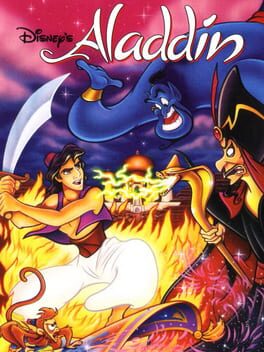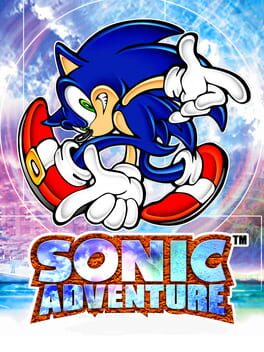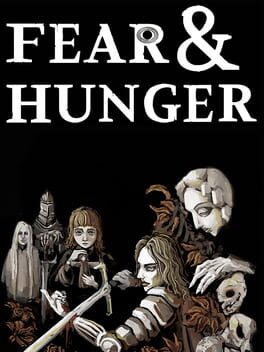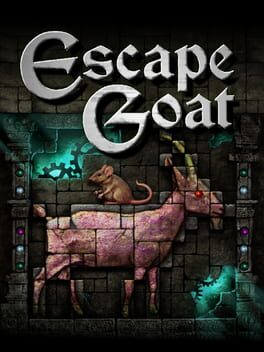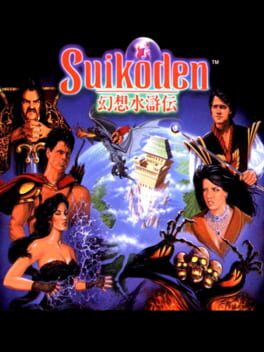epiglottis
2001
1999
Has a good grasp on the fusion of biohorror and Gothic gloom that made Resident Evil so unique and leverages that to attempt more emotional and thematic ambition than its B-movie inspiration. Flirts juuust enough with "chuunibyou mommy issues" that it's all the more satisfying when the game ultimately refuses the player-by-proxy power fantasy. It's schematic - one level to establish the tone, one to generate a human core, one to flesh out the setting, and one to tie it all with a neat little bow - but that keeps it focused even when it's indulging in the kind of conceptual excess that Resident Evil rarely allowed itself. Babylon Hotel didn't have to be populated with a bunch of freaks, but I'm glad it was.
The tank controls and janky survival horror combat are to be expected, but what I really can't countenance are the boss fights. Damage sponges with minuscule vulnerability windows, every one of them! Seriously, how many survival horror bosses have ever been good? I can think of maybe three that are even tolerable.
The tank controls and janky survival horror combat are to be expected, but what I really can't countenance are the boss fights. Damage sponges with minuscule vulnerability windows, every one of them! Seriously, how many survival horror bosses have ever been good? I can think of maybe three that are even tolerable.
2009
Sunk about twenty hours into FF16 and was so disgusted by the thing that I actually found it in my heart to forgive this game, my previous most-hated Final Fantasy, and play it one more time. So vivid! Remember when there was actual conceptual rigor behind these game worlds and not just five or six setpieces glued together with a bunch of samey connective tissue?
It's obviously a smokescreen for this game's whopper of a central metaphor - every Final Fantasy since 6 is fundamentally about its own existence, and this game's thrice-underlined iterations on PURPOSE and CREATION drive it home - and the fact that when your cast's shared dilemma is "we don't know what our goal is," you can push them around wherever and however you want without any real need to adhere to the basics of character-driven storytelling. No need to revisit the hallway simulator complaints, but they miss the point of the game: the first half grants us no freedom because while Lightning et. al. are on Cocoon they have no freedom. They simply stumble into one beautiful locale or flashy disaster after another until they realize they have a "choice" (such as a video game story allows it) and escape to the virgin open-world terrain of Gran Pulse.
I respect and understand the approach, but I don't love it. Counter to conventional wisdom, I think the game is stronger in the first half. Cashing out the story's adrenal momentum to focus on the combat does neither any favors, and it's only once you've been given free rein over the RPG systems that you realize how shallow they are. You control only a small portion of what occurs during combat, much of which is relegated to Auto-Battle anyway, while several other semi-random variables tick away in the background. It rarely feels as if any meaningful strategizing is happening. Plus, for a game so reliant on scripting out decisions for you, it seems to make a lot of stupid choices. Am I actually being challenged, or did I suffer a bullshit KO because my party won't spread out and the AI Medic refuses to use two AOE heals in a row? Why doesn't Auto-Battle recognize that my leader has 400 more Strength than Magic? Did my Synergist really have to put Bravery on Vanille? Maybe the postgame plays differently but I doubt I'll ever find out.
There are a lot of problems here but its vulnerability is oddly appealing. Both director Toriyama and then-Square president Wada went on record about how difficult it was to find a working formula for the JRPG in the late 2000s. A developer with an uncertain future CREATING a game about finding PURPOSE in the face of an uncertain future... I appreciate the commitment to sincerity, a guiding principle that rings clear even through heavy jargon. It was nice to revisit a game I disliked for so long only to find new merit in it fifteen years later. Fuck Sentinels, Light/Sazh/Vanille best party!
It's obviously a smokescreen for this game's whopper of a central metaphor - every Final Fantasy since 6 is fundamentally about its own existence, and this game's thrice-underlined iterations on PURPOSE and CREATION drive it home - and the fact that when your cast's shared dilemma is "we don't know what our goal is," you can push them around wherever and however you want without any real need to adhere to the basics of character-driven storytelling. No need to revisit the hallway simulator complaints, but they miss the point of the game: the first half grants us no freedom because while Lightning et. al. are on Cocoon they have no freedom. They simply stumble into one beautiful locale or flashy disaster after another until they realize they have a "choice" (such as a video game story allows it) and escape to the virgin open-world terrain of Gran Pulse.
I respect and understand the approach, but I don't love it. Counter to conventional wisdom, I think the game is stronger in the first half. Cashing out the story's adrenal momentum to focus on the combat does neither any favors, and it's only once you've been given free rein over the RPG systems that you realize how shallow they are. You control only a small portion of what occurs during combat, much of which is relegated to Auto-Battle anyway, while several other semi-random variables tick away in the background. It rarely feels as if any meaningful strategizing is happening. Plus, for a game so reliant on scripting out decisions for you, it seems to make a lot of stupid choices. Am I actually being challenged, or did I suffer a bullshit KO because my party won't spread out and the AI Medic refuses to use two AOE heals in a row? Why doesn't Auto-Battle recognize that my leader has 400 more Strength than Magic? Did my Synergist really have to put Bravery on Vanille? Maybe the postgame plays differently but I doubt I'll ever find out.
There are a lot of problems here but its vulnerability is oddly appealing. Both director Toriyama and then-Square president Wada went on record about how difficult it was to find a working formula for the JRPG in the late 2000s. A developer with an uncertain future CREATING a game about finding PURPOSE in the face of an uncertain future... I appreciate the commitment to sincerity, a guiding principle that rings clear even through heavy jargon. It was nice to revisit a game I disliked for so long only to find new merit in it fifteen years later. Fuck Sentinels, Light/Sazh/Vanille best party!
2020
A game that makes fun of soul-sucking opportunistic corporatism while refusing to comment on its own indulgence in trendy play mechanics, linguistic tics, and aestheticized pastel wholesomeness is what one might call "hella sus." I might still have come away positively on the experience if the final dungeon wasn't so fucking horrible. Relegating 50% of the gameplay to the Hades-lite character sidequests and then deciding that none of them matter makes no sense except as a concession that the developers didn't know how to balance the home stretch. All that's left is a stark look at the bones of what you're actually playing, and they are not pretty.
2023
A subpar character action game with an embarrassing case of Game of Thrones envy. Zero risk, conviction, or imagination; drained of visual and sonic color a la the Popular Genre Content style it so desperately apes; ceaseless irrelevant worldbuilding painted over with a patina of bleakness to make you feel like you're experiencing something important. Little more than a major victory for marketing and PR, if its reception is anything to go by.
2019
The lack of SBMM and the familiarity of Tetris mechanics forces you to directly confront a fact that every other battle royale attempts to obfuscate: your success in this game is almost entirely dependent on luck. Got a Tetris lifer in your lobby? A hyperfixated preteen with lightning reflexes? Enjoy your 43rd place! Invictus theoretically narrows the permissible range of player skill to allow for better-balanced matches, but truly, who has the time?
I got my Tetris Maximus and, God willing, I will never look back.
I got my Tetris Maximus and, God willing, I will never look back.
1990
Extremely forward-thinking synthesis of two seemingly disparate genres. The gears only truly grind against one another when you need to farm population size for more HP. Combined with an early but considered Quintet protonarrative about stewardship of humanity and the planet, ActRaiser has a wealth of ideas but never over-iterates them. Criticisms of its simplicity seem off base; what more does this game truly need? I do wish the action segments were less clunky but they made this shit in 1990, we can't get too crazy here.
1993
1994
Even with a more robust combat system than many of its top-down action contemporaries, Beyond Oasis seems content to self-designate as basic. The ranking system bears this out, prioritizing increasingly skilled and speedy replays rather than a single substantial experience. Ancient's idea of mounting complexity amounts to little more than "throw tons of enemies on the screen at once," so unfortunately the gameplay remains pretty static over the course of any given run, but there's still some life to be found in the Zelda-style exploration puzzles and vibrant palette. It's also fun to hear Yuzo Koshiro approximate a prog fantasy soundtrack on the Genesis sound chip, even (especially) when he's totally out in the weeds.
1993
1998
Pure, profound vibes, a huge slice of undiluted video game camp. No amount of janky spec demo gameplay can suppress the overflowing joy of experimentation and curiosity here. "Sonic had a rough transition to 3D" seems to be a common meme associated with this game, but to this Sonic non-fan, he has frankly never been better in either dimension.
I kind of want to give it five stars for the soundtrack alone. So many awkwardly translated image songs! Beautiful.
HEY BIG GUY!
Hey little guy~
Can you tell me what's inside???
I kind of want to give it five stars for the soundtrack alone. So many awkwardly translated image songs! Beautiful.
HEY BIG GUY!
Hey little guy~
Can you tell me what's inside???
2018
This is, and I swear I don't mean it pejoratively, a game for teenagers. To truly get the most of it, it asks you to 1) have the kind of patience that a large amount of free time affords you and 2) be young enough that you still find transgressive art relatively novel. These two design philosophies, repetition and transgression, work symbiotically: the cruelty of its mechanics buttresses the profoundly unpleasant aesthetic; your willingness to dive back in after repeated failure is contingent on your interest in whatever fucked up thing Haverinen can throw at you next.
For me, the game's disrespect of my time compromised the pleasures of its dark fantasy in about five hours, after I got fingerfucked to death a second time by the Harvestman. After that point, my eyes glazed over and everything started to look like mechanics to me. Every nail-biting coin flip and combat was reduced to a question of whether or not I was going to lose another twenty minutes of my precious life, and although I had previously respected the internet's insistence on playing blind, I fired up the wiki.
After another five hours of noble struggle, I realized that I was not strong enough to defeat the endgame bosses and hung it up. Maybe in the future I'll start another run, wiser and luckier, and achieve a better result. Unsatisfying? Was I filtered? Perhaps (and yes), but frankly the game is not deep enough to justify digging beyond its superficial "pleasures." It's a whole lot of lore and not much narrative ambition, an excuse to create a self-perpetuating misery engine for the player and the characters alike. The dead horse you can beat in the very first screen of the game is unfortunately more symbolic than it was meant to be.
I still admire the ferocity of its vision, its approach to the roguelike subgenre, and the unusual synthesis of its (admittedly surface-level) influences. I'll probably pick up Termina when it's on sale for $5 or so.
For me, the game's disrespect of my time compromised the pleasures of its dark fantasy in about five hours, after I got fingerfucked to death a second time by the Harvestman. After that point, my eyes glazed over and everything started to look like mechanics to me. Every nail-biting coin flip and combat was reduced to a question of whether or not I was going to lose another twenty minutes of my precious life, and although I had previously respected the internet's insistence on playing blind, I fired up the wiki.
After another five hours of noble struggle, I realized that I was not strong enough to defeat the endgame bosses and hung it up. Maybe in the future I'll start another run, wiser and luckier, and achieve a better result. Unsatisfying? Was I filtered? Perhaps (and yes), but frankly the game is not deep enough to justify digging beyond its superficial "pleasures." It's a whole lot of lore and not much narrative ambition, an excuse to create a self-perpetuating misery engine for the player and the characters alike. The dead horse you can beat in the very first screen of the game is unfortunately more symbolic than it was meant to be.
I still admire the ferocity of its vision, its approach to the roguelike subgenre, and the unusual synthesis of its (admittedly surface-level) influences. I'll probably pick up Termina when it's on sale for $5 or so.
2011
1995
Absolute amateur hour, a cascade of incomprehensible decisions. Shamelessly begs to be treated as a game of scope and impact while taking the easy way out of every mechanical (eh, just give the hero an all-target instadeath spell with 100% accuracy in case they get tired of pressing Free Will), systemic (the sheer joy of maneuvering this interface to manage items between 70+ characters...), and narrative (it's all the evil witch's fault!!) challenge. Konami, hardly a company known for developing RPGs, was seeing nothing but dollar signs when they demanded an 108-character roster from novice designer Murayama, a hearty stable of show ponies for a grand first step into a brave new console generation. Saddest of all is how little the company learned from the experience and how few substantive improvements were made to Suikoden 2, a game that does barely anything to actually improve its predecessor's play experience but enjoys a rich reputation based solely on a new coat of aesthetic polish. It cannot be overstated how hard Konami Kukeiha Club carries this.
I do grant it some positive tilt because this game is the training ground for the franchise's sense of humor, which is one of its most appealing parts to me. From time to time here they lean too hard into it, almost to the point of being callous, but sometimes you've just gotta learn the hard way not to use the banjo.
Twenty years of cheating at chinchirorin and counting 😘
I do grant it some positive tilt because this game is the training ground for the franchise's sense of humor, which is one of its most appealing parts to me. From time to time here they lean too hard into it, almost to the point of being callous, but sometimes you've just gotta learn the hard way not to use the banjo.
Twenty years of cheating at chinchirorin and counting 😘

